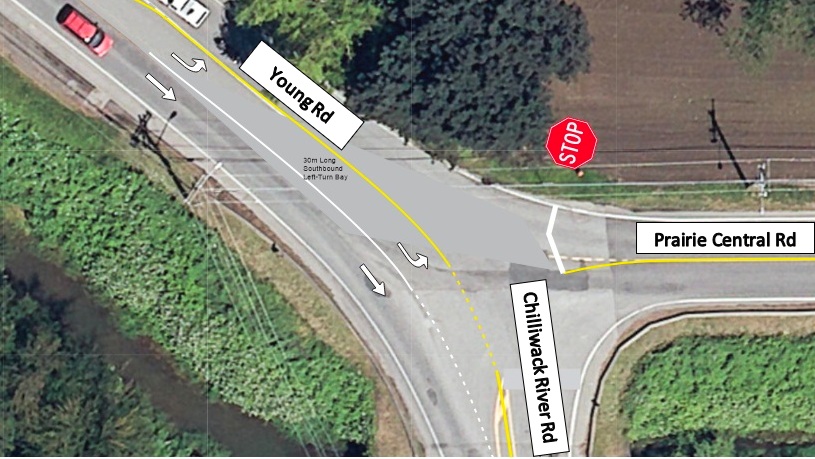Surrey/Victoria – The BC Government’s decided on Monday, to allow the Passenger Transportation Board (PTB) to begin accepting applications on September 3, 2019 from companies seeking to provide commercial ride-hailing in B.C. The PTB will determine the supply, boundaries and fares charged to passengers. Those areas are the exclusive responsibility of the independent Passenger Transportation Board.
ICBC will have its new insurance product ready for the launch of ride-hailing in September. It is a blanket, per kilometre insurance product providing compulsory, third-party liability and accident benefits. The blanket insurance product will apply when the driver is providing ride-hailing services, with the driver’s own basic vehicle insurance policy applying in all other instances.
All regulations will be in force on September 16, 2019, to support full implementation of ride-hailing services after the board decides on the applications it receives.
The Surrey Board of Trade was one of the first organizations to state they are pleased with the decision but they have a concern.
In a media release, the Surrey Board of Trade is disappointed that Class 4 licence requirements are a part of the regulation. This needs to be revisited by government to enable full market participation in the ride-hailing industry,” said Anita Huberman, CEO, Surrey Board of Trade.
“Ride-hailing services will allow for a reliable source of transportation as current transportation systems in place are inadequate especially in cities like Surrey,” said Anita Huberman, CEO, Surrey Board of Trade.
The Surrey Board of Trade’s ride-hailing advocacy has included the following components:
1. allowing taxi and ride sharing drivers to utilize a Class 5 licence similar to Ontario, Manitoba and Saskatchewan if the driver meets strict safe driver screening criteria;
2. market-based pricing to ensure consume choice, convenience and innovation; and,
3. abolish geographic boundaries for drivers, allowing any qualified driver to participate without artificial caps, allow them to adjust their serving areas.
The regulatory framework includes:
Class 4 licence requirement
- Government will require all ride-hail drivers and taxis to hold a commercial Class 4 driver licence. Drivers must have a B.C. issued driver’s licence to drive a taxi, limo or ride-hail vehicle.
Provincial record check
- Drivers will require criminal and driver record checks. A driver cannot have four or more pointable convictions within two years or any serious driving infractions within a three-year timeframe.
Penalties under the Passenger Transportation Act
- Illegal operators can face fines of up to $100,000 per day. The registrar has the authority to issue administrative penalties up to $50,000 to licensed operators who fail to meet regulatory obligations. Seven new record check related offences have also been created.
Safe companies, safer drivers
- The company or licensee is responsible for conducting a review of the driver and issuing a record check certificate for those drivers who meet provincial requirements. The company or licensee is also responsible for hiring and monitoring drivers, reducing fatigue through adherence to hours of service requirements and ensuring vehicles are mechanically sound and safe to operate.
Protecting accessibility
- A new 30 cent “per-trip” fee for non-accessible ride-hailing vehicles is being established to support funding for accessibility programs. New regulations will allow for accessible vehicles with side entry as well as rear entry that will provide more choice for the disability community.
Industry safety
- Drivers of taxis and ride-hail vehicles will be required to conduct an annual inspection if the vehicle has logged 40,000 kilometres or less in the previous year. A semi-annual inspection will be required if vehicles log more than 40,000 kilometres or more in the previous year. Ride-hail vehicles cannot be older than 10 years to operate.
New insurance options
- ICBC will sell a blanket insurance product directly to the ride hailing company (or facilitated through a broker to the ride hailing company). The rate for this blanket product will be based on kilometres driven. Both the ride hailing company and vehicle owners will have the choice to purchase additional optional coverage, such as collision and comprehensive coverage, to extend while providing ride-hailing services.
Peer-to-peer (P2P) insurance
- This new product provides an option for peer-to-peer rental companies to purchase insurance coverage on behalf of vehicle owners who rent their vehicles through a peer-to-peer platform. ICBC’s peer-to-peer blanket insurance product will be available to peer-to-peer companies on Sept. 16, 2019. Insurance rates for this new insurance product will use a daily rate.
Peer-to-peer (P2P) platform
- Rental companies are companies that connect renters and vehicle owners through an online platform. Peer-to-peer companies that purchase the new peer-to-peer blanket insurance product will provide peace of mind for vehicle owners who connect with renters via their online platform. Renters will benefit by knowing that the vehicle they are renting is appropriately insured. The peer-to-peer company and vehicle owner also have the choice to purchase additional optional coverage, such as collision and comprehensive coverage. Anyone considering renting their vehicle through a peer-to-peer platform is encouraged to contact their insurance broker for more information.






